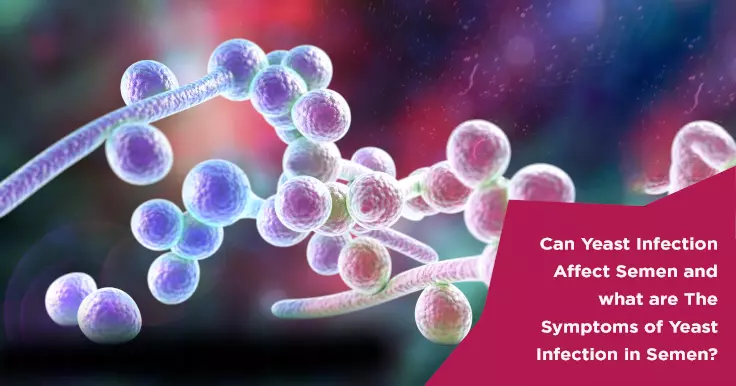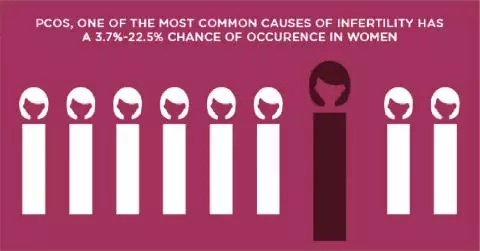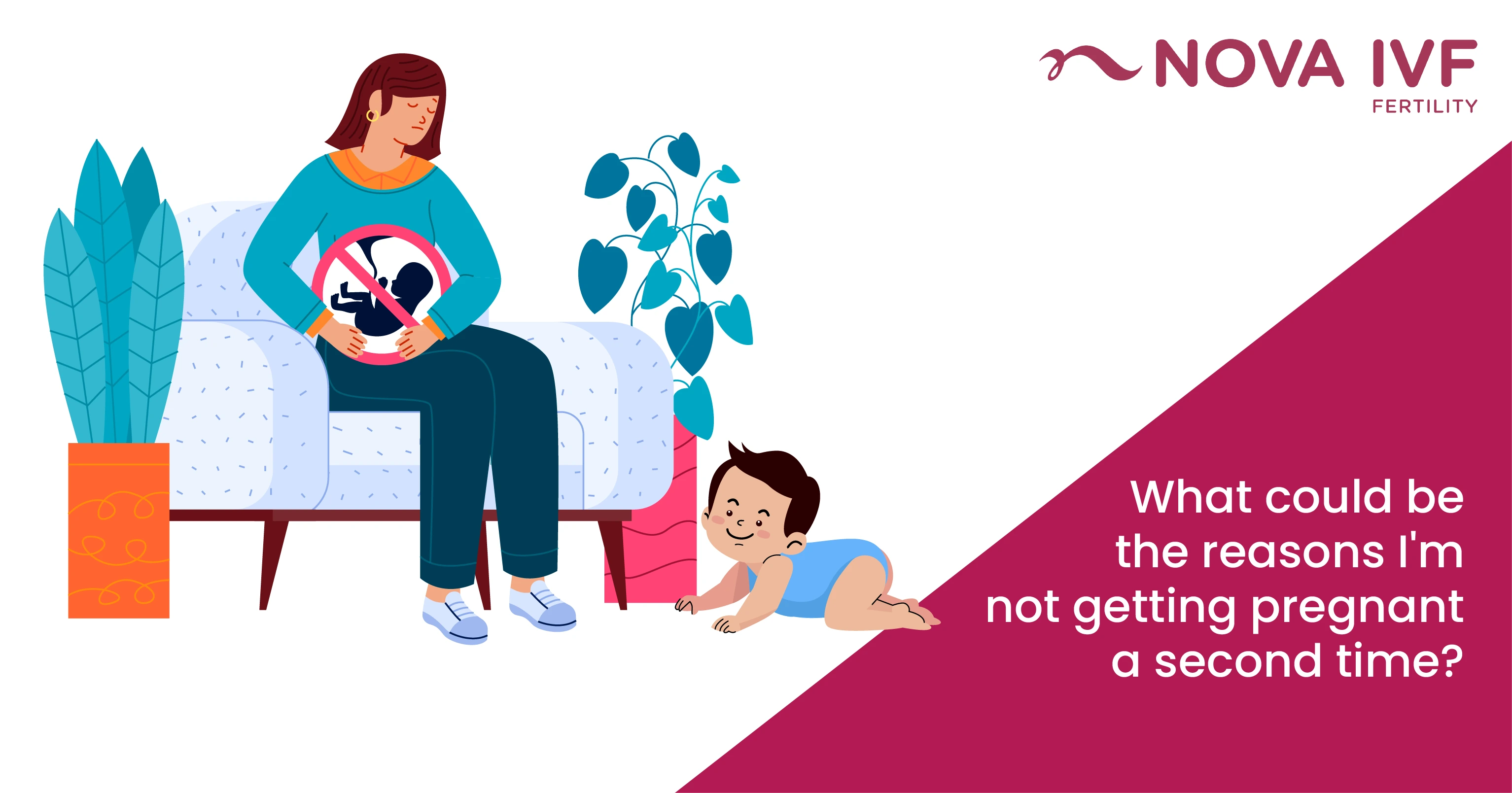Penile Yeast Infection : Symptoms & Treatment

At some point in their lives, almost everyone may have suffered from fungal infections or at least heard about them occurring to their loved ones. While it is majorly common to have vaginal yeast infections in women, it is fairly common in men as well. Penile yeast infections are caused by an overgrowth of the fungus Candida albicans, which also causes vaginal yeast infections. The infection, referred to as male candidiasis, may cause itching, burning, and inflammation of the head of the penis and foreskin, as well as blisters, sores, and a discharge with foul odour.
This page discusses what is a penile yeast infection, its symptoms, causes, treatment, prevention, and more.
What Is a Penile Yeast Infection?
A penile yeast infection is an infection caused by a fungus that occurs in the penis. Candida balanitis is a medical terminology used to describe yeast infections in men. Candida is a form of yeast that can cause yeast infections. Balanitis is an infection or inflammation of the head of the penis (glans).
Your skin is home to many kinds of yeasts, including Candida. This is usually not a problem for healthy individuals. However, when Candida overgrows, it has the ability to penetrate beneath the surface of the skin. This can lead to a rash or a skin infection.
Candida flourishes and thrives in humid, warm conditions. It is most typically found in wet, wrinkly areas, such as the foreskin of the penis.
Who does Candida balanitis affect?
Candida balanitis may occur in individuals of all ages. Approximately one out of every twenty-five males get Candida balanitis in their lifetime. The condition will affect one out of every thirty uncircumcised people.
Children under the age of four years and those who have not been circumcised are more likely to be diagnosed with the infection. Candida balanitis is far more likely to develop when you have phimosis. Phimosis occurs when you are unable to pull your foreskin back over your penis. Once youngsters reach the age of five years, their foreskin normally becomes easier to retract, thereby lowering their risk level.
How common are male yeast infections?
Male yeast infections are relatively common. Approximately 3% to 11% of males are likely to get one throughout their lives.
Penile Yeast Infection Symptoms
Male yeast infections may not always exhibit symptoms right away. Sometimes they begin with a persistent itching or discomfort that develops as the fungus spreads and affects deeper tissues.
The rapid growth of fungus around the penis tip (glans) and beneath the foreskin (prepuce) can cause an inflammatory response, resulting in glans inflammation (candidal balanitis) or prepuce and glans inflammation (candidal balanoposthitis).
Male yeast infection symptoms involve the following:
- Burning, irritation, and itching at the tip of the penis and underneath the foreskin
- Small pimple-like blisters or bumps
- Shiny, raw patches or sores on the head of the penis.
- foreskin swelling, making it difficult to retract.
- Pain during sexuality activity
- A foul-smelling, thick discharge like cottage cheese from the penis head or behind the foreskin
- burning sensation while urinating
Some of the above symptoms are similar to those associated with sexually transmitted illnesses (STIs), such as gonorrhoea, chlamydia, and trichomoniasis. It is essential that you visit a healthcare provider to determine the reason for your symptoms. If it is an STI, therapy can help prevent the infection from spreading to others.
Penile Yeast Infection Causes
Candida is a yeast responsible for penile yeast infections. Although a little amount of candida is typically present in the body, an overgrowth can cause a yeast infection.
Candida flourishes in warm, damp settings. Candida balanitis is most usually seen in uncircumcised individuals. Other medical conditions and other factors associated with Candida growth include:
- Poor hygiene
- Use of harsh soaps
- Not thoroughly washing soap from your foreskin
- Not properly drying off
- Damaged or irritated skin
- Having sex with a partner with vaginal yeast infections.
Certain categories of people are more likely to have yeast infections. This includes those who:
- Have conditions which suppress the immune system, such as diabetes, HIV/AIDS, or cancer.
- obese or overweight
- are receiving antibiotics. Antibiotics kill microorganisms that naturally exist in your body.
- Have a STI.
Penile Yeast Infection Risk Factors
Besides having sexual relations with someone who is suffering from a yeast infection, numerous other factors can increase the risk of contracting a penile yeast infection, including:
- Skipping normal genital hygiene, i.e., not washing the penis and the underneath of the foreskin regularly
- Long-term exposure to wet garments or tight-fitting clothes
- Having an impaired immune response because of drugs or health issues and using antibiotics
- Being on immunosuppressive therapies, such as corticosteroids or chemotherapy
- Having diabetes alters the skin's pH, making it more favourable to fungi.
- Use of irritation-causing skin-care products or soaps
- Using lubricated condoms
- Obesity
- Being uncircumcised
- Wearing undergarments that are tight can trap heat and moisture.
Male Yeast Infection Diagnosis
When you book an appointment, the doctor will enquire about the symptoms and most likely examine the area around your genitals. They may be able to detect a yeast infection by examining your penis and foreskin. If you have a red rash, they may be able to diagnose you with a yeast infection.
Your healthcare professional may choose to obtain a sample of the affected region for testing. They will use a tongue depressor or scalpel to carefully scrape some of the infected skin off. A pathologist will examine the specimen of the white discharge that develops on the penis using a microscope to determine which type of fungus is causing the symptoms.
If you are unable to see a family physician, try visiting a urologist. The earlier you acquire a diagnosis and begin treatment, the better your chances of avoiding problems.
It is not recommended that you diagnose yourself and begin treatment on your own. If you have signs of a penile yeast infection, consult a doctor. If symptoms persist, the consequences can be serious.
Penile Yeast Infection Treatment
A mild fungal infection can resolve on its own with proper cleanliness and skin care and may not require any treatment.
Most penile candidal infections, however, can be treated with an antifungal lotion, cream, or ointment. Some medications are also available over the counter (OTC), whereas others may require a written prescription from your doctor.
Some of the most common anti-fungals include:
- Miconazole
- Clotrimazole
- Mycostatin
These medications can be applied directly to the affected area of the skin twice a day for up to 14 days. Most infections are resolved within this timeframe.
Some physicians may offer twice-daily doses of a topical steroid cream.
If topical antifungals fail to treat the infection, then oral antifungals such as fluconazole may be required. The medicine is often recommended in a single dose of 150 mg, but if the fungal infection has progressed to the urinary system or other organs, longer and more vigorous therapy may be required.
To help clear up the yeast infection, keeping the groin area dry and clean is important. This will additionally prevent the yeast infection from recurring.
If antifungal medicines do not work or you have recurring yeast infections, your doctor may recommend circumcision.
Treatment of Recurrent male yeast infections
Yeast infections can recur even when they seem to be resolved. If this occurs, your doctor will most likely prescribe a few weeks of everyday treatments and then another few weeks of weekly treatments.
In some circumstances, recurrent male yeast infections may require to be treated for up to six months.
If the infection is not responding effectively to an antifungal treatment and you are not circumcised, a doctor may recommend that you get an adult male circumcision.
What are the Complications of a Penile Yeast Infection?
Male yeast infections may lead to serious issues if left untreated, especially if you are susceptible to recurrence. Some of the common consequences include:
- Prostatitis (It is inflammation associated with the prostate gland.
- Skin lesions, such as lichen planus and leukoplakia, can induce scarring.
- Phimosis (It is the foreskin tightening because of tissue scarring.
- Urethral stricture (It is a narrowing of the urethra, the passageway from which urine leaves the body)
In individuals with extreme immunodeficiency, especially those with untreated HIV/AIDS, infection with yeast in the genitals can, at times, spread and show systemic involvement.
The condition, referred to as invasive candidiasis, may cause damage to critical organs such as the brain, heart, lungs, and oesophagus. This potentially life-threatening condition requires intensive therapy in a medical facility with intravenous antifungals.
How long does a penile yeast infection last?
If you treat your infection early and it responds effectively to antifungal medications, it should clear up within 7-14 days.
If you have been engaging in sexual activity, the other person should also be treated for the infection. This protects them from getting the infection or transmitting it back to you.
If you have recurring fungal infections and may have checked the cleanliness and sexual contact, consult a doctor regarding other likely reasons. You might be suffering from a medical condition that is underlying, like diabetes.
How do you prevent a penile yeast infection?
To reduce the chance of getting or passing on a yeast infection, consider the following:
- Maintain regular hygiene by cleaning the head of the penis and the inside of the foreskin using water and a mild cleaner. Pat dry underneath the foreskin using an absorbent towel or a low-temperature blow dryer.
- Avoid using body powder or baby powder on the genitals since they retain moisture.
- To minimise dampness in the groin, wear boxer briefs or breathable cotton underwear.
- Change your sweaty garments immediately following exercise or work.
- Use condoms during intercourse to avoid contracting the fungal infection from your partner.
- If you are immunocompromised and at risk of recurrence, your healthcare professional may recommend a low daily dosage of oral fluconazole.
- If you are not circumcised and have repeated recurrences, you should consider having it removed through circumcision.
Conclusion
Penile yeast infections are mainly caused by the fungus Candida albicans. They can result in redness, pain, sores, itching, swelling, and foul-smelling discharge. Male yeast infections are frequently caused by inadequate hygiene, a weakened immune system, the use of antibiotics or immunosuppressive medicines, diabetes, or obesity.
A penile yeast infection that is mild generally resolves on its own. If not, an OTC or prescription antifungal medication will typically clear up the infection. Keep your private parts dry and clean and use condoms during sexual activity to lower the chance of contracting Candida during sex.
FAQs
Question. Do penile yeast infections go away on their own?
Answer:Depending on the reason behind it, a yeast infection can subside on its own or once what is causing it is addressed. However, untreated infections can lead to complications in some situations; thus, consulting a healthcare practitioner is strongly suggested.
Question. What are the signs and symptoms of a penile yeast infection?
Answer: A male yeast infection may appear as a scaly, reddish rash on the penis' underside. Inflammation surrounding the penis head is not usually present, but it is possible. In rare situations, a yellowish or white discharge accumulates beneath the foreskin, making it more difficult to retract.
Question. What can you do to treat a male yeast infection?
Answer: Treatments for yeast-related infections are both available and effective. For 1 to 2 weeks, it could include over-the-counter or prescription antifungal topical medications as well as medication taken orally. Penile yeast infections can mimic the symptoms of other illnesses, including some infections transmitted through sexual activity, necessitating different medical treatment plans. Only a medical practitioner can make an accurate diagnosis.
 Infertility Counselling
Infertility Counselling Female Infertility Treatment
Female Infertility Treatment Andrology Treatment
Andrology Treatment Fertility Enhancing Surgeries - Female
Fertility Enhancing Surgeries - Female Fertility Enhancing Surgeries - Male
Fertility Enhancing Surgeries - Male Endoscopy Treatment
Endoscopy Treatment IUI Treatment
IUI Treatment IVF Treatment
IVF Treatment ICSI Treatment
ICSI Treatment Advanced IVF Solutions
Advanced IVF Solutions Embryology
Embryology Vitrification Egg, Embryo, Sperm Freezing
Vitrification Egg, Embryo, Sperm Freezing Preimplantation Genetic Testing (PGT)
Preimplantation Genetic Testing (PGT) Donation Program Embryo / Egg / Sperm
Donation Program Embryo / Egg / Sperm Self-cycleTM IVF
Self-cycleTM IVF

 Self-cycleTM IVF
Self-cycleTM IVF











